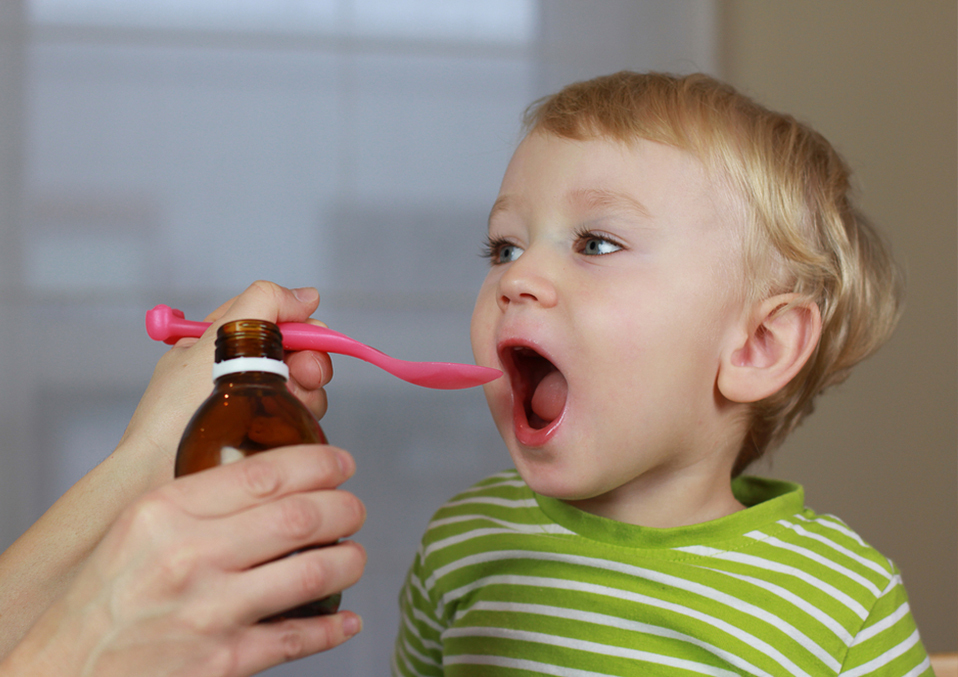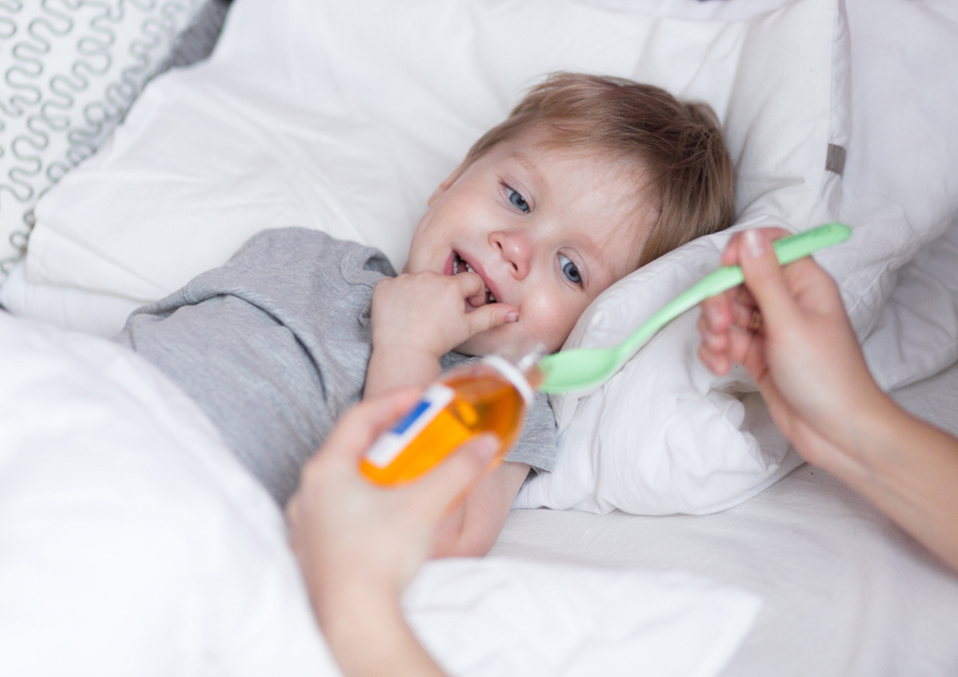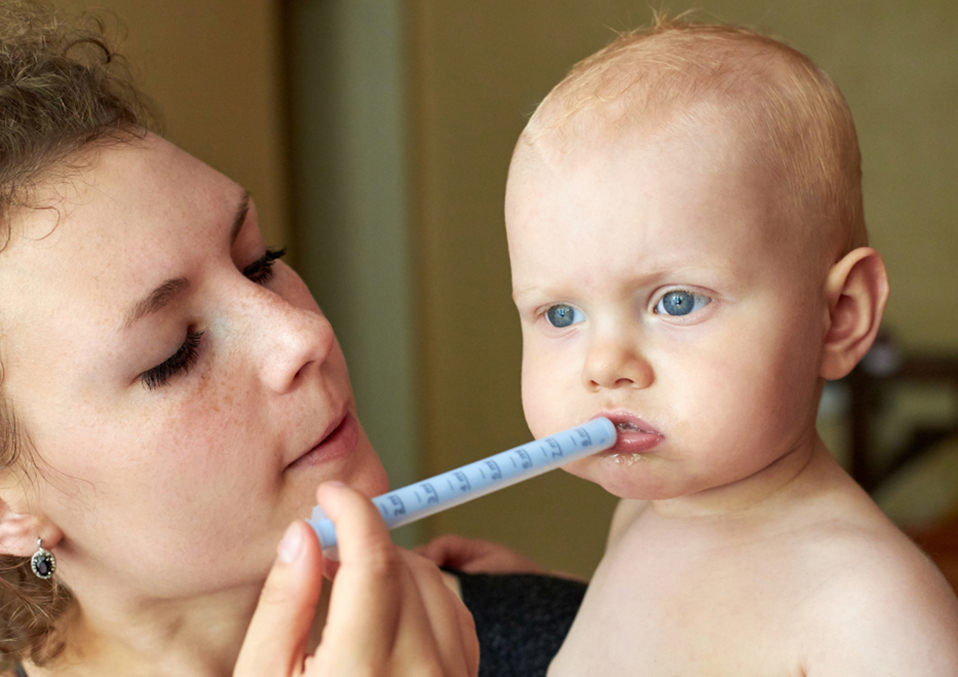How to get a toddler to take medicine is really a difficult issue for many parents. Children can be rebellious when it comes to taking medicines that look, smell and taste unpleasant. It is always preferable that parents approach children with caution when it is time to give them a daily dose of something bitter. A number of useful tips to help parents defeat their reluctant children are discussed in detail below.
How To Get Children To Take Medication
1.Explain The Benefits:
 One strategy is to repeat the benefits of the drugs in detail, which will make a sick child endure the bitter taste in order to feel better again. Discuss with the children how a little of the usual medication will help them regain sufficient health so that they can stop taking medication.
One strategy is to repeat the benefits of the drugs in detail, which will make a sick child endure the bitter taste in order to feel better again. Discuss with the children how a little of the usual medication will help them regain sufficient health so that they can stop taking medication.
2. Make Medicines Tastier:
Some drugs can be moved and consumed in different amounts depending on their needs and the instructions given by doctors. Parents can consult a doctor to obtain permission to use different strategies to make medicine more attractive to children. For example, refrigerate a liquid dose or administer a drug with juice or other beverages to mask the unpleasant taste.
3. Give Your Children Choices:
Offering choices to children can give them some form of control over their condition. If a child suspects that he or she is forced to do something he or she does not want to do, the task can become quite difficult. Coercion can work wonders if it is used with the right strategy. A choice between choosing the drink with which to take medication can give them an idea of familiarity and excitement, which helps them to accept the medication more easily. You can also tell them that they can choose between a new book and Extra TV time if they take their medication. This technique is one of the most effective ways to get children to take medication.
4.Involve Your Children:
Giving children an idea of what is going to happen can help them get involved and become familiar with how the drug is administered. The administration of medication in a play scene can also encourage children to accept the situation.
When it comes to illnesses in children that require timely daily medication, it is often better for parents to let children know about the possible consequences of not taking their medication. Sometimes the truth works better than any strategy.
5. Make The Medicine Colored:
 Children are attracted to colors: colorful patterns, vibrant clothes, exotic jewelry, glitter cosmetics; you call it and they love it. The same applies to medicinal products. Children prefer to drink or take medications that have an attractive appearance. The pale pink compared to a fruity red will be dull, boring and unpleasant. A change in bright red can help children focus more on the outer appearance rather than the fact that they are doing something they don’t want to do.
Children are attracted to colors: colorful patterns, vibrant clothes, exotic jewelry, glitter cosmetics; you call it and they love it. The same applies to medicinal products. Children prefer to drink or take medications that have an attractive appearance. The pale pink compared to a fruity red will be dull, boring and unpleasant. A change in bright red can help children focus more on the outer appearance rather than the fact that they are doing something they don’t want to do.
6. Try Swallowing Techniques:
Four-year-old children can be taught to swallow whole pills. An alternative is to break them down into fragments. Pieces of pills can be added to Jell-O portions, which will mask the bitterness of the drug. Another way to teach children to swallow whole tablets is to cover the tablets with liquids that will make them slippery enough to be swallowed easily.
7.Mix The Medicine With The Food:
Some medicines are available in powder, but they can also be crushed to suit children. It is always best to consult with doctors and health experts about drugs that can be administered as powder. The powder can be added to a cup of juice or pudding. Make sure the child completes the complete help.
8. Avoid Physical Struggle:
It is always best to give your child medication with confirmation. Forcing a child to take medication is not healthy and it is difficult to maintain the same activity for longer. Vigorous administration may also instill hostile feelings in the child, which may be expressed in a negative trait. It is advisable to seek professional advice from physicians and therapists after avoiding physical difficulties while administering the drug. It is better to use a professional than to use physical force for young children.
9. Tell The Children The Consequences:
Providing a child with different options for choosing to take their medication with strength or strength is also a useful strategy. Phrases like”I see you wasting your time playing games avoiding your medication.” Using small allowances such as thumbnail diagrams or mini-certificates in the case of forcing children to take their daily doses is an effective technique.
Read Also:
10.Getting Help:
It is always best to alternate medication between parents. If a single parent is expected to undertake the task, the child may have negative feelings for that particular parent and view the other parent as a weak end. Alternation can give children the impression that it is impossible to avoid the drug dose from one parent.
11. Find a Suppository Form:
For children with chronic disease or excessive resistance, some drugs are available as suppositories. Parents should consult with doctors and health experts as this form of medication depends on the weight of the child.
12. Turn The Experience Into a Game:
 Does your little you have a superhero soul? Then entrust him with saving the Earth and ask him to take his magic potion to have enough strength. Does your chip have a crush on his teddy bear? Give him a spoon before offering. If she loves cars, run a race to see who wins the treatment that boosts her vehicle. If your child is a fan of reading, there are also stories and stories about doctors or taking medication.
Does your little you have a superhero soul? Then entrust him with saving the Earth and ask him to take his magic potion to have enough strength. Does your chip have a crush on his teddy bear? Give him a spoon before offering. If she loves cars, run a race to see who wins the treatment that boosts her vehicle. If your child is a fan of reading, there are also stories and stories about doctors or taking medication.
13.Share:
Your little cutie is never too small to be logical and skeptical. If he sees mom or dad forcing him to drink or swallow something, without either of them having tried it, he will a priori be much more suspicious. Taste with him the treatment. It can also help you to discover that drug stings, burns or is really unpleasant and thus to realize the reasons that make your child resistant to taking it.
14. Let It Reindeer :
From the age of two, don’t hesitate to make him responsible. Toddlers love to feel treated like adults and able to make themselves useful. Let him hold the spoon with you or press the spray in his nose. Tell him you need his help, he’ll feel valued and proud.
15. Be Honest:
Tell him you understand it’s unpleasant. That yes, it is a medicine, that it is not the funniest thing to live, that it is neither delicious nor nice. But explain to him that it is necessary, that it will do good to his throat or open his nose, that it will bring down his fever and help him to be fit to play. Give meaning to what you are doing, it will help him not only see the moment as an injustice.
16. Negotiate, But Not Too Much:
Set boundaries. All this must be done smoothly, but it is nevertheless essential to make him understand that he will not be able to avoid taking his medicine. For if your little piece has any of the respondents, he will surely do his best to postpone indefinitely the fateful moment. If he is more than two years old, clearly state his options, for example: “you can still play for five minutes, then you will have to come and take your medicine. If you refuse, mom will have to put it in your mouth with the little pipette.”
17. Take The Time:
Keep calm. It is essential not to be in a hurry. It could stress him out and rob him even more. If you have to give it to him before the daycare or school, start well in advance and wake him a little earlier. Do not forget that what may seem trivial and trivial to you, is a small ordeal for your mini-tip.
Read Also:
- 4 Signs of growth spurts in your toddler.
- What is the right age to give my baby paracetamol or ibuprofen?
- 6 Physical Traits Inherited From Your Parent.


